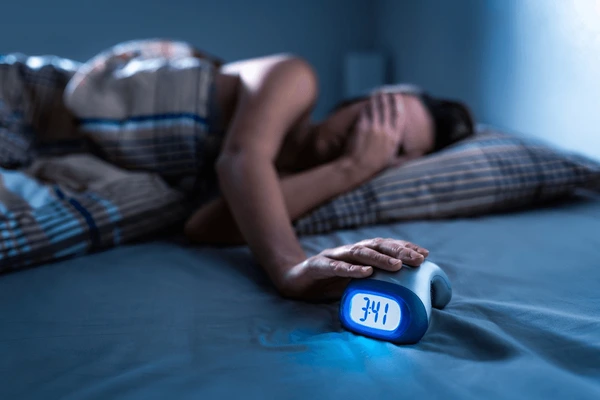7 Proven Tools to Calm Your Mind and Rest Through the Night
If you’ve ever stared at the ceiling with racing thoughts, a tight chest, or overwhelming worry, you’re not alone. Anxiety is one of the biggest barriers to restful sleep — but there are science-backed ways to take control.
In this 2025 guide, we share 7 proven strategies to help you fall asleep faster, sleep deeper, and wake up calmer, even if anxiety tries to sabotage your rest.

Why Anxiety Keeps You Awake
Anxiety floods your body with stress hormones like cortisol and adrenaline. These trigger a state of hyperarousal, making it hard to wind down or stay asleep. The mind races, the body stays tense, and rest feels impossible.
That’s where targeted techniques — like deep touch pressure and sleep ritual structuring — come in.
1. Use a Weighted Blanket for Deep Pressure Relief
Weighted blankets apply gentle, even pressure across the body — like a calming hug — which activates the parasympathetic nervous system (your “rest and digest” mode).
Benefits include:
- Lowered cortisol levels
- Slower heart rate
- Reduced nighttime panic
- Deeper, more restorative sleep
See our top-rated weighted blankets for anxiety →
2. Set a Fixed Sleep Schedule (Even on Weekends)
Your brain thrives on rhythm. A regular sleep-wake schedule stabilizes melatonin production and trains your body to relax at the right time.
Tips:
- Go to bed and wake up at the same time every day
- Limit naps to 30 mins max
- Use a sunrise alarm clock to wake naturally
3. Try Guided Meditation or Breathwork
A 10-minute guided session before bed can significantly calm the mind. Look for meditations focused on:
- Body scans
- Box breathing (4–4–4–4)
- Progressive muscle relaxation
Free apps like Insight Timer or Calm offer excellent anxiety-focused audio content.
4. Limit Caffeine and Alcohol Before Bed
Both stimulants and depressants affect sleep architecture:
- Caffeine delays sleep onset and lightens deep sleep
- Alcohol may knock you out fast but fragments REM cycles
Cut off caffeine by 2:00 PM, and avoid alcohol 2–3 hours before bed.
5. Create a Calm, Screen-Free Bedtime Routine
Blue light from phones and laptops blocks melatonin, the hormone that helps you fall asleep.
Instead, try:
- 30–60 minutes of screen-free wind-down
- Reading a physical book
- Journaling your worries to release them
6. Try Calming Supplements or Herbal Teas
If your anxiety is mild to moderate, natural supplements may help:
- Magnesium glycinate: relaxes muscles and nerves
- L-theanine: boosts alpha brainwaves
- Chamomile, lavender, or passionflower teas
Always consult a healthcare provider if you’re on medication or have chronic anxiety.
7. Reduce Bedtime Overthinking with a “Worry Journal”
One of the most effective (and simple) tools:
Write your worries down before bed.
This reduces mental load and gives your brain permission to “let go” of anxious loops.
Pro tip: Pair this with a gratitude list — 3 things you’re thankful for that day.
Bonus Tip: Set Up a Relaxing Sleep Environment
- Keep the bedroom cool (60–68°F)
- Use blackout curtains
- Remove clutter and distractions
- Use a lavender diffuser or soft ambient music
